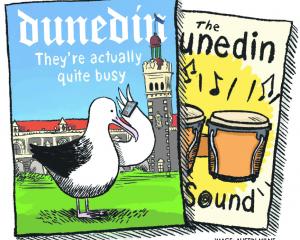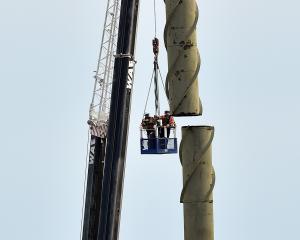New Zealand's unemployment rate rose in the year to December, catching market watchers by surprise.
However, it was not all bad news as employment growth remained healthy and jobs growth was driven by full-time work, generally seen as a vote of confidence by employers.
Statistics New Zealand figures reported the unemployment rate for the year rose to 5.2%, ahead of forecasts by economists of 4.8% and the September quarterly rate or 4.9%.
Westpac senior economist Satish Ranchhod said the unexpected rise in unemployment reflected stronger than expected growth in labour force participation, currently at a record high, rather than weakness in economic conditions.
Employment and hours worked actually posted solid growth, slightly better than expectations.
''Analysts, including ourselves, had expected the unemployment rate to fall in the December quarter. The rise in the unemployment rate does not point to a deterioration in the labour market.''
The underlying detail of the December quarter Household Labour Force Survey pointed to stronger labour demand. In the quarter there was solid growth in employment of 0.8% and hours worked rose 1.3%, he said.
Strength in the labour market was also reflected in the employer-focused Quarterly Employment Survey. Full-time employee numbers rose 1% in the quarter and employers also reported a solid 1.2% lift in the number of labour hours.
As previously noted, strong growth in the economy had been attracting more people into the labour market and the trend had been reinforced by strong levels of migration, Mr Ranchhod said.
The trends had meant the participation rate climbing to a record high of 70.5%. The increase in the size of the labour force outweighed the increase in employment, resulting in the lift in unemployment in December.
ANZ chief economist Cameron Bagrie believed the labour market was tighter than the measures released yesterday suggested.
''How can it be possible that at a time of record net migration and labour force participation, firms are telling us finding skilled staff is their biggest problem?''
It spoke of a less efficient labour market at matching workers with jobs and would be compounded in the future by large secular forces such as technology and demographics.
It also pointed to even greater dispersion in wage growth, he said.
However, for now, overall nominal wage growth remained steady at a low level. ANZ's preferred measure of wage growth, the private sector Labour Cost Index, rose just 0.4% quarter-on-quarter, leaving annual growth unchanged at 1.6%.
Total gross earnings, which took into account wages, hours and employment, posted a 1.4% quarterly increase.
The backdrop for labour income, and pending spending, overall remained positive, Mr Bagrie said.
Labour finance spokesman Grant Robertson was critical of wages barely keeping up with the cost of living.
The point of economic growth was to deliver a better standard of living to New Zealanders but under National, that was not happening.
Labour would invest in decent work with higher wages, he said.
Comments
The ANZ Bank chief economist says "How can it be possible that at a time of record net migration and labour force participation, firms are telling us finding skilled staff is their biggest problem?''
Now I'm not a rocket scientist, but even I understand that refugees and other migrants to New Zealand are not pre-selected to fill job vacancies in the country.
If this is the clarity of understanding from one of the Chief economists in NZ, then it probably proves why economists should not be running the government. May the Lord save us from myopic bean counters!













